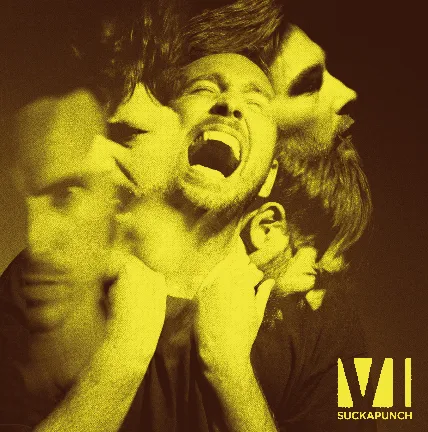Photo Credit: Sam Bond
According to many a broadsheet nowadays, rock music is on its way out. We, however, undoubtedly disagree, and with bands like You Me At Six, Young Guns, We Are The Ocean, Canterbury, Deaf Havana and Lower Than Atlantis creeping up radio playlists and the charts alike, we’re definitely not alone in that thought.
Obviously though, everyone has to start somewhere and in DIY Magazine’s latest cover feature, Sarah Jamieson gets to grips with the bands who are heading up rock’s assault on the mainstream. As promised, we also have full length interviews with each of the bands, and here, we chat to Max Helyer from You Me At Six about the early days.
In the beginning, you did as any band and began by just playing shows around the areas you grew up in. How important was it to be playing shows like that?
Well, I think it is important. You’ve got to build your band up from the grassroots and work the local area that you do live in. You’ve got to dominate where you live and get people interested in your band, play as many shows and get people to talk about you within your local music scene. For us, we played a lot of shows in our local area, ranging from Guilford, Weybridge, Kingston, Woking. Wherever we could really play. We played a lot of shows just to get the word of mouth spread about our band. There was a point where people were saying, ‘Oh okay, cool, yeah, You Me At Six at the top of the list’ and when people started doing that, we said that we had to start branching out now and try to hit other areas that we hadn’t been to before. To spread the word, start planting the seed in people. We said, ‘Okay, this is a band from Surrey. We built up in Surrey but we’re going to push out as far as we can do.’ I think it’s happened with a lot of the UK music scene; Canterbury, We Are The Ocean, Twin Atlantic, Deaf Havana, you know? We all pretty much just started playing our local shows, but when you’ve got people talking about you, you’ve got to branch it out to try and get other people on board with your band.
Back in 2008, you obviously took things a step further and began to take out your friends on national tours too, like in early 2008 when you invited We Are The Ocean and All Forgotten out.
It was cool because we were doing a headlining tour and people wanted to come to it, so it was a chance to get other people interested in bands from our local music scenes that we really liked, or were friends with. It was all about helping everybody out; giving somebody a foot up because it’s not the easiest industry to be in. You might be the best band in the world, but some people might not pay you attention. That’s a hard thing to go through. That’s one of the reasons that we took those guys out: we felt like those guys deserved a chance to have people see them.
So, why was it so important for you guys to tour so relentlessly at the beginning, and what was it like?
You just have to put yourself in those positions. It is tough touring, and as you know, it’s not the easiest cycle. Many people turn around and say, ‘yeah, cool, touring must be the best life in the world’ but it sometimes can be a bit of a strain. It can put you in positions where you think, ‘Why are we doing this?’ Especially when you’re starting off. Some people might not even care about your band, and you’re trying so hard and pushing it as hard as you can. But, there’s a point where you’re thinking, ‘We’re only just starting up, we’re spending all of our money travelling, we’re not really getting paid much for a show, we’re not selling much merch.’ It can be difficult but the thing is, it’s about persevering and working really hard because it is something that you really want to do. If you put all of the hard work that you can into it, then it’s going to pay off.
You notoriously embarked upon your first tour using Megabus; do you think those early experiences helped shape you into the band that you are today?
Yeah, definitely, but that was just our determination. That was just what we wanted to do, There was no other way for us, as a band, to really tour and that was the only way we could really go out and play shows. We knew we’d have to go and play all of these shows around the country, so we though, if we can’t afford a van, we might as well just get out there in the cheapest possible way. It was pretty much just a mini lads holiday. That was the year that me, Josh and Chris had just finished secondary school; Matt was already in his first year of college. We treated it as a bit of a lads’ holiday, but in the way that we were playing shows and experiencing the world. We were starting to grow up a lot more and we had to fend for ourselves.
A lot of people can and do get spoonfed these days; they have the advantages of getting a van or they’ve got money to do it now. I think it was a turning point for our band, when we did it, because we learned so much about touring life at the start, by going on Megabus or trains, and carrying all of our equipment all across the country. It’s something that every band should try and do when they first start touring. You have to experience the grime and rough life of touring, and all of that only made our band wiser.
When you released your latest album ‘Sinners Never Sleep’, you also included a DVD documentary portraying the growth of You Me At Six. Why was that an important thing to show to your fans?
For me, it’s important for people to actually realise what the band has been through. They say, ‘Oh, you’ve just come out of nowhere’ or ‘Oh, your band are only big because of one song.’ Well, not really, you know? We did have a song that connected with people but we had other songs that connected with people as well. It’s important to realise what a band’s journey has been about, and what they’ve gone through as a group of people and individuals as well. It hasn’t been the easiest of rides for us to get to where we are today. People say, ‘Oh, you’ve had it on a plate’, but no, we haven’t had it on a plate. We worked it from the grimy scale at the bottom, playing to four people in TJs. It’s all about, really, just hard work at the end of the day. Getting yourself out there. If you want something so badly, you’re going to have to go out and do it.
Hopefully, for bands who do start up as well, it’s an important thing for people who watch our DVD that might be starting up a band, saying, ‘I wonder how they made their way there.’ It’s interesting for those people to hear as well, because they wouldn’t have thought that we’d done such a thing. I just think it’s very important to be open and let everyone know what your journey has been about. For us, it was never explained properly and no one really talked about it. We just wanted to talk about our entire band’s history in the DVD from where we were when we first started jamming out, to where we were when we recorded the third CD. I think a big part of that was the first few tours, starting to get ourselves a bit of a name, starting to get people buzzing about our band. You’ve just got to go out and work as hard as you can.
Obviously, you’ve grown up surrounded by a lot of friends - for example, you went to college with members from All Forgotten - that have made their own separate ways into the industry. What’s it been like as an experience to know so many people that have ended up working in music?
It’s good. You can see all the different characters and see how people have worked their way into the industry. With Kill The Arcade, they were a band that, when I was younger, I would go see them. I enjoyed their music and it was cool to go out with a band that I really liked and looked up to. You found out about different ways of touring; as I said, it doesn’t not easy, and for those guys, it took them a long time. It’s changed now, but as a band, they’ve been working and writing as a band for a really long time. They’ve been together for eight years. With All Forgotten, they’re a bunch of talented individuals, and band, and they just had to work it. It didn’t work out for them, unfortunately, but that’s what happens to some people. Sometimes, it just doesn’t work out. They look back on it now and say, ‘We’ve had a fair few great years of my life, playing shows and touring around the UK.’ That’s what it’s really all about. For other bands, they’ve dropped their name and gone onto new things and people have joined other bands; things like that. Music is an interesting road to take with your life because you just don’t know where it’s going to lead you. Anything could happen. You don’t know what could happen in this industry and that’s why I like it. It is up and down a lot of the time, but that’s only what makes the industry exciting. You don’t know what’s going to happen next, or who’s going to be the next big band, what magazine’s gonna cover a band that you’ve never heard before that are going to be your favourite band of all time. It’s exciting.
Have you any particularly fond memories of early touring?
I remember the first time we toured in a van. That was fun. We had Jack from Not Advised driving us because he had a van. That was the first tour that Dan was on as well, so it really felt like the start of the brand new You Me At Six. We were all just in this van every day, having chats, listening to music. We slept in the van, we slept in people’s houses. We didn’t really spend much money and people just basically looked after us when we were touring. I think you always remember the first time you ever do a van tour. Then, I remember the first time we did a bus tour - the Astoria tour - with Farewell and Houston Calls. It’s the first time you do things in a band’s career; every first time you do something, you’ll remember it.
Most recently, you took out Lower Than Atlantis and Deaf Havana on tour with you in October. At a point in time where you could take anyone on the road with you, why did you decide to choose to take your friends out?
Touring with friends is the most important. It makes touring so much nicer. You could have a band on your tour that you’ve never met before and it could go one of two ways. They could either be amazing people and you could get along so well, or you could not get along with them at all. For us, Deaf Havana and Lower Than Atlantis have been working their arses off. They’ve both got albums out, they’ve both been touring for a long, long time and we got along with them really well. It’s all about helping your friends out at the end of the day. For bands like them, they might not have the chances to get people watching them. We had our first chance when we went on tour with Fightstar. We didn’t expect to get a big tour and then we got asked, ‘Do you want to go on the Fightstar tour?’
That was like, ‘Wow, we’re going on our first proper tour.’ I’m not saying that was their first proper tour, but we had the opportunity to play in front of people that had never heard of our band before. For us, that was a massive opportunity for us to really impress and show new people our music and what our band’s about. I think that’s what the UK needs to do. There’s a lot of music in the UK that is amazing, it just needs to be shown to a lot of people and that’s one of the reasons that we took both those bands out. They both deserve it. They both deserve the recognition they should be getting.
Read More
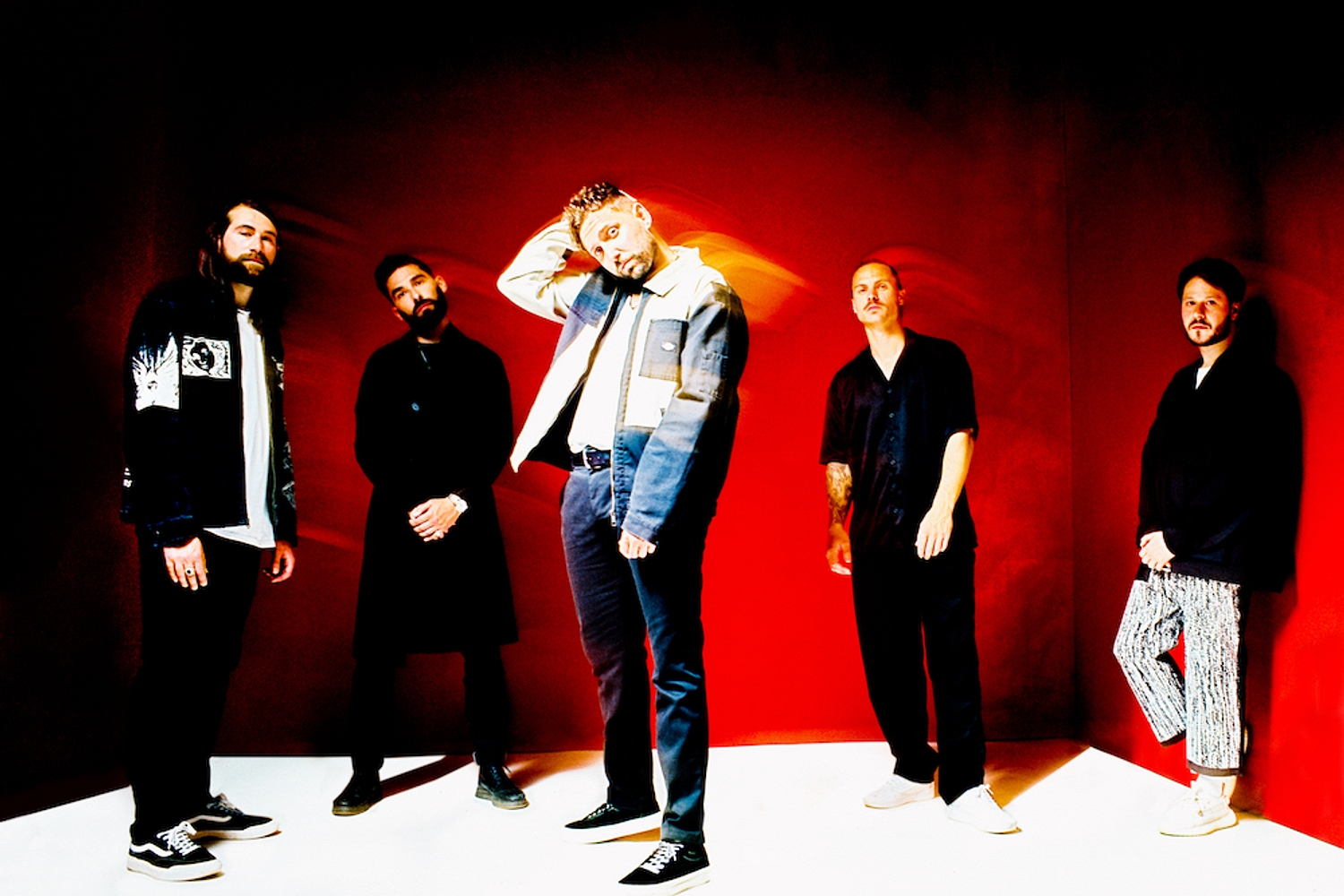
You Me At Six announce split alongside plans for final live shows
The Surrey quintet will make their final festival appearances when they headline Slam Dunk Festival this summer.
1st February 2024, 4:41pm
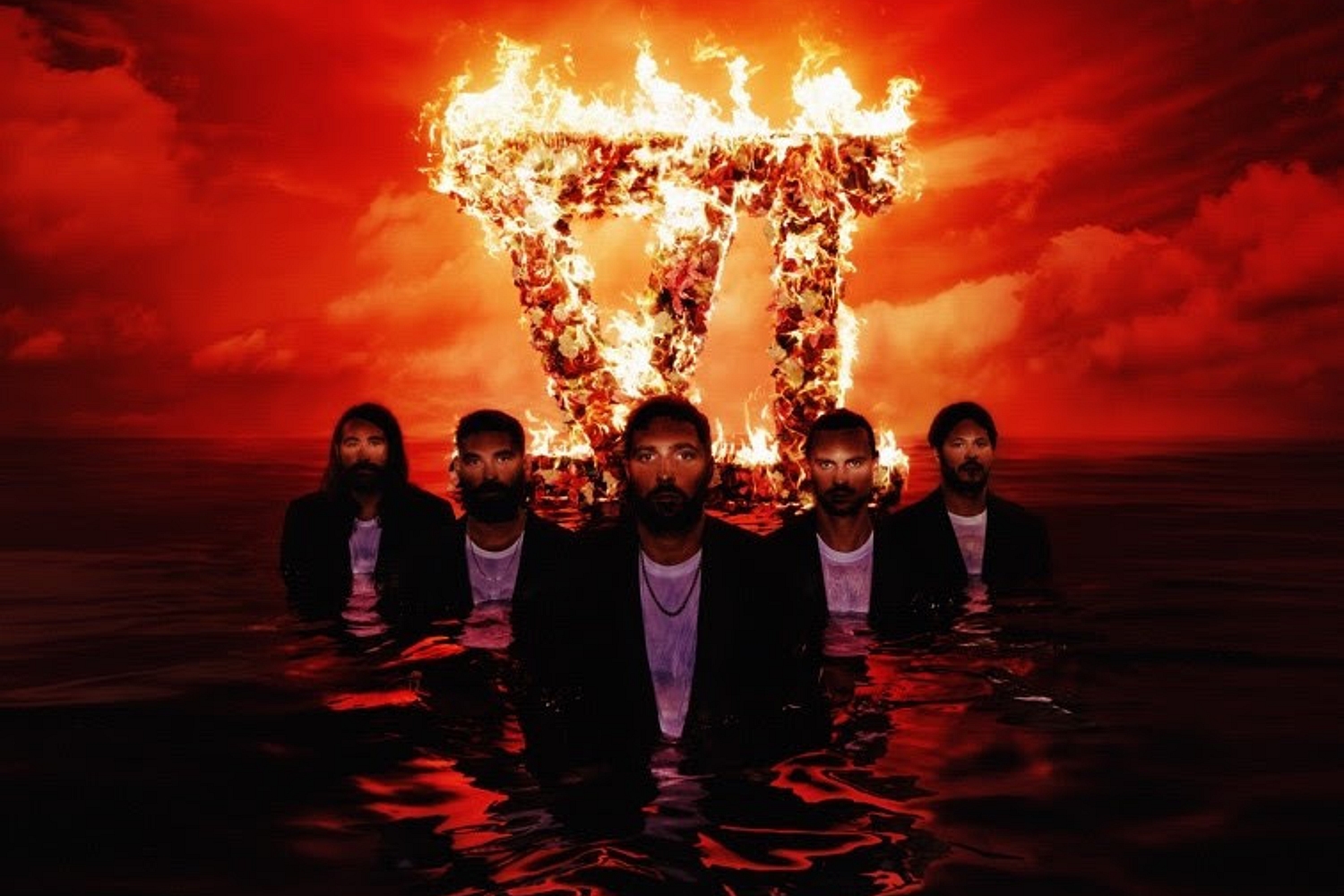
You Me At Six - Truth Decay
4-5 Stars
The hooky pop-rock and epic singalongs they made their name on, yet still pushing their own sonic boundaries.
27th January 2023, 12:00am
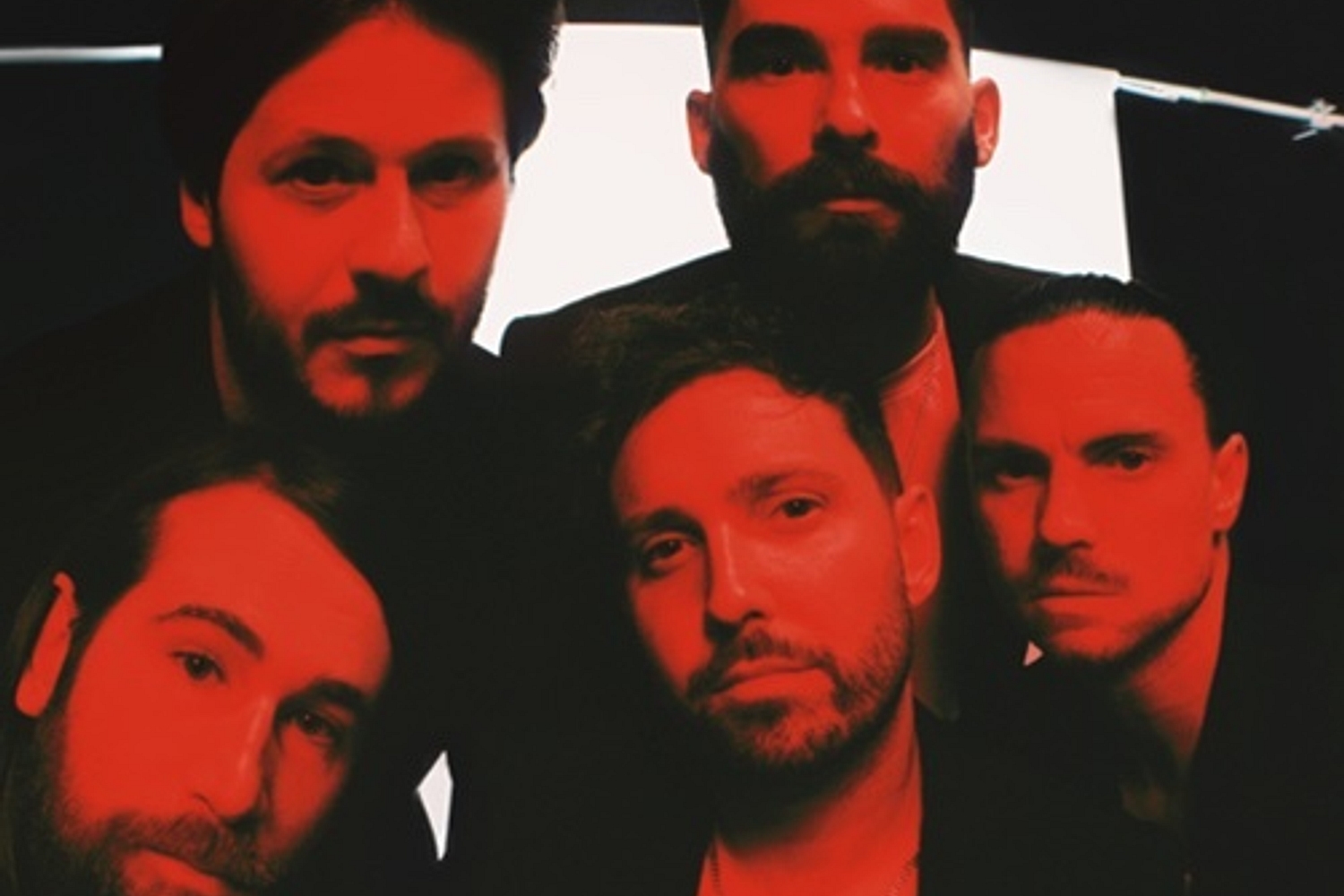
You Me At Six share new single ‘heartLESS’
It follows the announcement of their eighth studio album ‘Truth Decay’.
8th December 2022, 12:00am
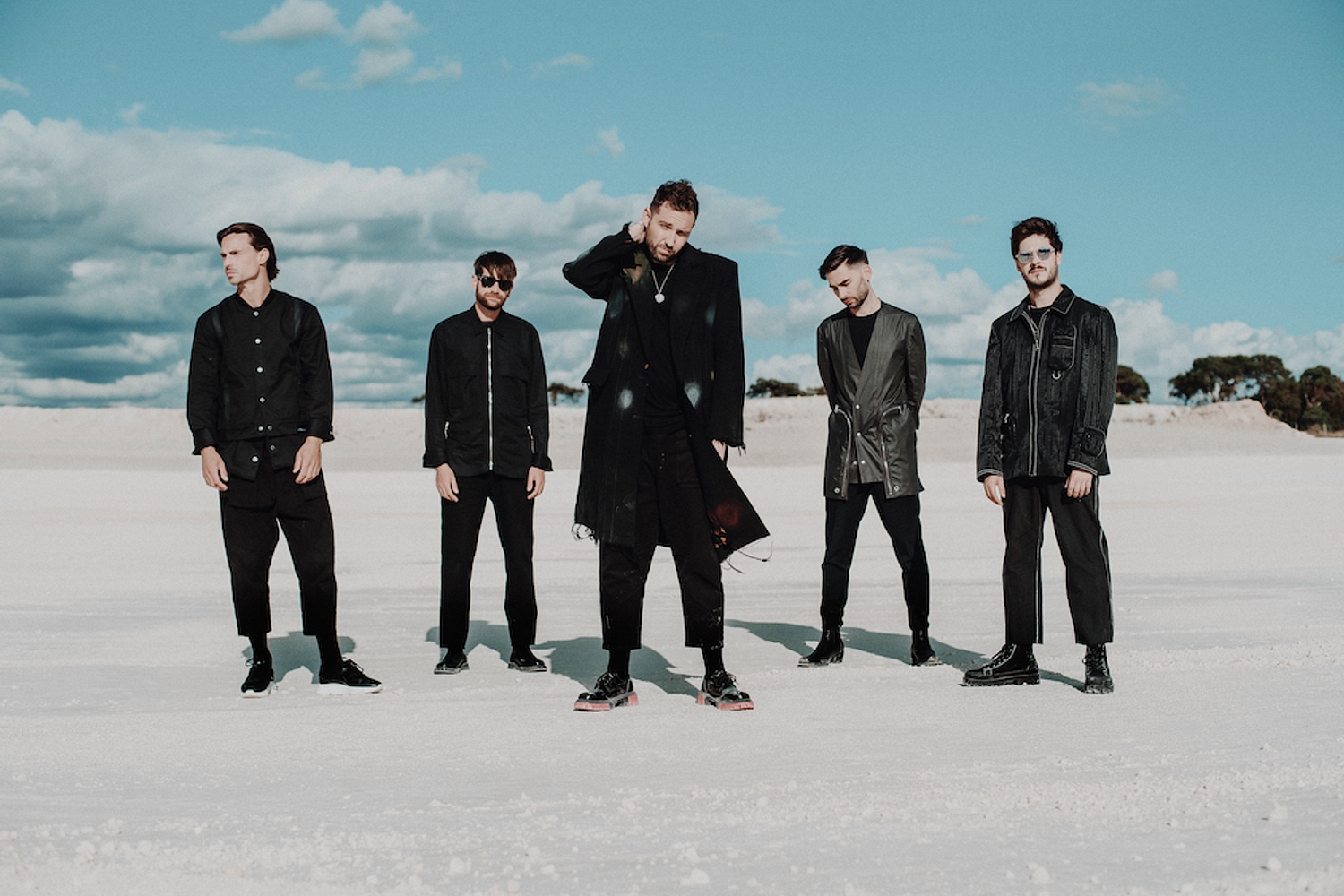
You Me At Six announce ‘Sinners Never Sleep’ anniversary shows
The band will celebrate their third album's tenth anniversary with two live gigs next June.
27th September 2021, 12:00am
